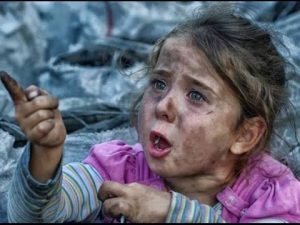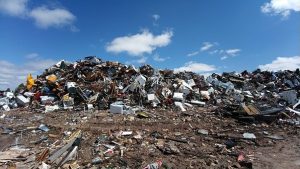Lent, Lamentations, and Renewal: The Hurt of the World
Author: Bobby Valentine | Filed under: Bible, Christian hope, Discipleship, Faith, Grace, Holding On, Lamentations, Lent, SufferingI have defended the Christian freedom for this elsewhere for observing days in honor of the Lord, so will not do that here but Genesis 1.14-15 (TEV, NJB, etc) and Romans 14.5-6 are sufficient for people who accept the authority of Scripture. See the following for that defense: Easter/Pascha: Bobby V, Theology & Freedom, Part One; Easter/Pascha: Bobby V, History & What They Didn’t Tell Me about the Early Church, Part Two; Lent: Theology for Ash Wednesday & Bobby V.
Lamentations of Israel
In the Hebrew Bible, the people of God often recognized the Spiritual need to lament individually and corporately. So powerful was this urge that over half of the Psalms are lament.
Israel has a day of mourning or lamentation called Tisha B’Av or the Ninth of Av. On this day the whole Book of Lamentations is publicly read as Jews lament the destruction of the Temple in 586 BC and AD 70 along with the sin that led to such horrific destruction.
“She weeps bitterly in the night,
with tears on her cheeks;
among all her lovers
she has no one to comfort her;
all her friends have dealt treacherously
with her,
they have become her enemies”
(Lam 1.3)
“For these things I weep;
my eyes flow with tears;
for a comforter is far from me,
one to revive my courage;
my children are desolate,
for the enemy has prevailed”
(Lam 1.16)
“Look, O LORD, and consider!
To whom have you done this?”
(Lam 2.20)
“Restore us to yourself, O LORD,
that we may be restored;
renew our days as of old –
unless you have utterly rejected us,
and are angry with us
beyond measure”
(Lam 5.21-22)
Lament is not simply about “complaining” as some pejoratively and misguidedly claim. Rather it is about coming clean before God about the state of things in our lives and our world and finding grace, shalom, healing, and renewal.
Renewal. Making things new. Healing the hurt of the world. That is what we seek. There are many things I can take responsibility for in my life and confess to God and beg God’s forgiveness.
But like Jesus lamenting on the cross, moaning the words of Psalm 22, we can confess that the hurt of the world is bigger than me, bigger than my sin, bigger than even all of us.
So the season of Lent, which reminds us of the power of repentance, it is totally appropriate to lament. We are messed up despite our best daily efforts.
Our would is in such pain and such misery. And the Bible forces us to recognize the world’s hurt not just our own. So lament fills our world as people thrash about looking for answers.
The Hurt of the World
Thus the rock group Nine Inch Nails powerfully gave utterance to lamentation. But it is in Johnny Cash, who covered the song, the pain is nearly unbearable.

“They say to their mothers, ‘Where is the food and wine?’ as they faint away in the streets of the city” (Lam 2.12)
“I hurt myself today
To see if I can still feel pain
I focus on the pain
The only thing that’s real
The needle tears a hole
The old familiar sting
Try to kill it all away
But I remember everything …
I wear this crown of thorns
Upon my liars chair
Full of broken thoughts
I cannot repair”
This is the Hurt of the world.
Often times it is of our own doing.
But many times it is not.
Our culture teaches us to hide it all away. To bury it inside. To deny the pain and the hurt. And we die a little more as a result.
Sadly, churches often participate in this evil plot. It is weakness. It is a lack of faith. It is un-American.
But it is profoundly biblical.
It is in the lament that we let go and let God. It is in confessing the hurt of the world that we join the entire human race before the Creator God desperately in need of his renewal and his healing.
Lent provides us a specific “appointed time” where we can tell God we hurt. Here we can come clean over the failed marriages. Here we lament the broken promises as parents. The moments of selfish greed that wrought hurt. The times we have failed to love and cherish those that mean the most.
We can also, finally, lament the suffering, abused, and starving children around the globe. We can come clean to our failure to love our neighbor as God himself does. We join hearts with the moms whose tears, as in the Book of Lamentations, are their food. We lament that the powers of this world would rather build weapons of mass destruction than make sure their citizens have food to eat.
The world is hurting. Its people. Its animals. Its trees. God’s world is crying. The testimony of inspired Scripture lets us hear the hurt of creation. We often overlook these passages or dismiss them in our “Modern” worldview. Here are a few,
“The earth dries up and withers,
the world languishes and withers;
the heavens languish together with the earth.
The earth lies polluted under its inhabitants;
for they have transgressed laws,
broken the everlasting covenant.
Therefore a curse devours the earth,
and its inhabitants suffer for their guilt …
The wine dries up, the vine languishes,
all the merry hearted sigh …”
(Isaiah 24.4-7, read down to v.13; See 33.2-9)
“For the land is full of adulterers;
because of the curse the land mourns,
and the pastures of the wilderness are dried up ...”
(Jeremiah 23.9-11; see Jeremiah 4.23-28; 12.7-12)
“Hear the word of the LORD, O people of Israel;
for the LORD has an indictment
against the inhabitants of the land.
There is no faithfulness or HESED
and no knowledge of God in the land.
Swearing, lying, and murder,
and stealing and adultery break out;
bloodshed follows bloodshed.
THEREFORE the land mourns,
and all who live in it languish;
together with the wild animals
and the birds of the air,
even the fish of the sea are perishing”
(Hosea 4.1-4)
“For the creation waits with eager longing for the revealing of the children of God; for the creation was subjected to futility, not of its own will but by the will of the one who subjected it, in hope that the creation itself will be set free from its bondage to decay and share the freedom of the glory of the children of God. We know that the whole creation has been groaning in labor pains until now; and not only the creation, but we ourselves …” (Romans 8.19-23)
Jesus’s Lamentation
We ourselves have hurts so deep that to even acknowledge them produces tears pain.
But in lamentation God’s Spirit works profoundly. In it we become dependent children trusting in our Abba that he not only will but IS somehow already healing the world itself and ourselves along with it. We join Jesus as he prays Psalm 22,
“O LORD do not be far away!
O my help, come quickly to my aid!”
Lament opens us up to not only healing but renewal. The Psalmist, and Jesus, gain divine strength to believe in a new future. Thus the Psalmist says (Jesus),
“I WILL tell of your name to my brothers and sisters,
in the midst of the congregation I WILL praise you:
you who fear the LORD, praise him!”
and
“All the ends of the earth shall remember
and turn to the LORD;
and all the families of the nations
shall worship before him.
For dominion belongs to the LORD
and he rules over the nations.
Gracious Healing of the Wounds
Somehow our hurts are mixed into the Messiah’s. Somehow the Messiah’s hurts are representative of the world’s. And as the Messiah joins us in our lament the miracle of God’s healing and renewal comes to all creation.
The Gospels point to the Cross as that moment of the Great Lament and the Great Renewal. It is there that the Messiah said to Israel, I am one with your Lamentations.
It is here that the Messiah says to Johnny Cash, I am one with your Hurt. It is there that I join Jesus in lamenting the hurt of the world … and discover God’s New Creation.
During this season, this appointed time, take time to learn the language of biblical lament. Include the hurt of the world in your time of reflection. Here the Holy Spirit graciously works in the even the hells of our own making and brings renewal to our world through the Messiah’s lament hanging on the Cross. His lament is everyone’s lament because at that moment the Jewish Messiah is every human that has ever hurt.



Leave a Reply